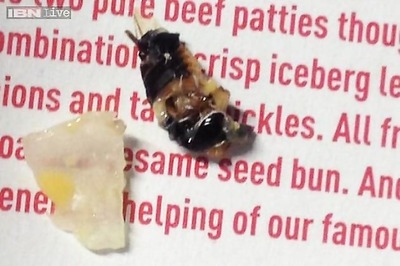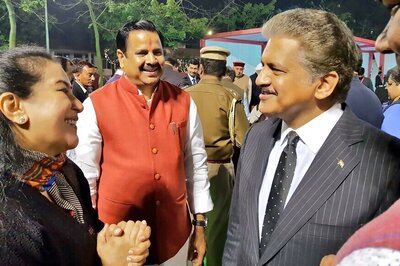
views
There used to be a time when most of the Ganesha idols you saw at pandals across Chennai were made in or around the city. But over the years, this practice has died. Price effective competition from Andhra Pradesh has meant the artisans who used to make the idols in Chennai have now given up the practice. Instead, they have taken to trading in the Andhra Pradesh-made idols, sourcing them and selling them in the city for a profit.
“For generations, we made Ganesha idols. But we have had to give it up. It is not feasible for our boys to make the paper mache idols anymore,” says Sambandamurthy, the 70-year-old patriarch of an artisanal family in Chennai’s Kosapet.
His sons walk briskly around him, organising the most recent shipment of paper mache Ganesha that has come in from Andhra Pradesh.
“When N T Rama Rao was the Chief Minister of Andhra Pradesh, he allotted land and houses for artisans at Mangalam, near Tirupathi. They have facilities, amenities and the support of their government. So, they are able to make the idols cheaper than ours. We have now become dealers of these idols. We buy them from the Mangalam artisans and sell them here,” says Sambandamurthy.
Too old to hobnob and set in his old ways, Sambandamurthy stands bare-bodied outside his hovel selling Plaster of Paris moulds and clay to those who want to make their own clay idols and sell them.
Even households in Kosapet that still deal in tiny, painted clay Ganeshas are feeling the pinch of the new regulations imposed by the government.
Selvi, who runs a wholesale idol business from her home in Kosapet, is sharp in her criticism. Recently introduced regulations are preventing these artisans from baking their clay wares in kilns in the locality.
“Where are we to bake our clay idols then?” asks Selvi curtly. “The Tamil Nadu government had issued a Government Order (GO) in 1964 giving us the right to continue with our ancestral trade in this locality,” she points out.
“The name of this area is ‘Kosapet’. That is nothing but a corruption of its traditional name of Kuyavar Pettai, which means this is the area of the potters,” she snaps, before turning to talk to a customer.
She turns back and having considerably cooled down, says, “We are perfectly willing to comply with government regulations. But it is not right to suddenly deny 100 families their living. The Tamil Nadu government must give us some space outside the city, where we can set up kilns for our wares. The Andhra Pradesh government did it, why can’t the Tamil Nadu government do it?”




















Comments
0 comment